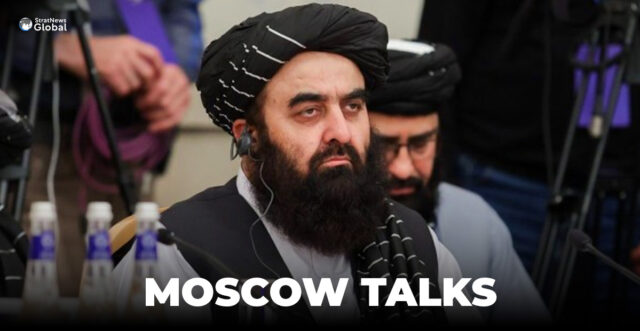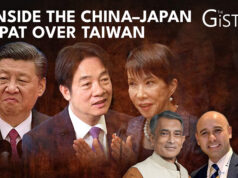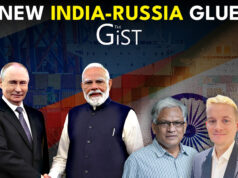Russia has urged regional powers to fully integrate Afghanistan into political and economic frameworks, as the seventh round of the Moscow Format talks opened in Moscow on Tuesday with the Taliban attending as official participants for the first time.
India was represented at the meeting by its ambassador to Russia Vinay Kumar. The development comes ahead of Afghan Acting Foreign Minister Amir Khan Muttaqi’s scheduled visit to India on October 9 and 10.
Addressing delegates from 10 regional countries, Russian Foreign Minister Sergey Lavrov said that the long-term security and development of the region depended on Kabul’s inclusion in multilateral initiatives. “Ensuring the security and well-being of our region presupposes Kabul’s involvement in political processes, in multilateral associations, and in the implementation of joint economic projects,” he said.
The meeting brought together senior representatives from India, Russia, China, Iran, Pakistan, and five Central Asian nations — Kazakhstan, Kyrgyzstan, Tajikistan, Turkmenistan, and Uzbekistan — with Belarus attending as a guest delegation.
For the first time since the Taliban’s return to power in August 2021, the group participated in the Moscow Format as an official delegation, marking a notable diplomatic shift in regional engagement. Russia, which recognised the Taliban-led government earlier this year, has called on regional countries to expand cooperation with Kabul, crediting the administration with maintaining internal security despite limited resources.
An Indian delegation led by Ambassador @VKumar1969 participated in the 7th Moscow Format Consultations on Afghanistan hosted by the Russian Foreign Ministry on 7 October 2025 in Moscow. As a civilisational and contiguous neighbour of Afghanistan, India supports an independent,… pic.twitter.com/eNMesoP8dl
— India in Russia (@IndEmbMoscow) October 7, 2025
The Moscow Format was established in 2017 as a six-party mechanism involving Russia, Afghanistan, India, Iran, China and Pakistan as a regional platform for dialogue on Afghanistan. It was later expanded with the inclusion of more countries, and meetings were held in Moscow in 2017 and 2018.
Lavrov also reiterated Moscow’s opposition to any foreign military presence in Afghanistan or its neighbouring countries. “The deployment of military infrastructure by third countries on Afghan territory, or in neighbouring states under any pretext, is unacceptable,” he said. Russian envoy Zamir Kabulov dismissed reports about renewed U.S. interest in Bagram Air Base, calling them baseless.
During the consultations, participating countries reaffirmed support for Afghanistan’s sovereignty and territorial integrity and emphasised the importance of its economic revival. They urged the development of trade and investment partnerships between Afghanistan and regional countries, highlighting the need to advance projects in healthcare, agriculture, poverty alleviation, and disaster management.
The joint statement issued after the meeting underlined collective opposition to the politicisation of humanitarian aid and urged greater international support for Afghanistan’s recovery. Delegates also stressed the need to strengthen counter-terrorism cooperation, emphasising that Afghan soil should not be used to threaten the security of neighbouring countries.
The parties further called upon countries “mainly responsible for the current predicament in Afghanistan” to fulfil their commitments to the country’s economic recovery and stability. They also reaffirmed their stance that any attempt to deploy foreign military infrastructure in Afghanistan or nearby states would harm regional peace.
With India’s participation and the Taliban’s formal inclusion, the Moscow Format has taken on renewed significance. The discussions are expected to lay the groundwork for expanded regional cooperation and stability ahead of Muttaqi’s upcoming visit to New Delhi.
In a career spanning three decades and counting, Ramananda (Ram to his friends) has been the foreign editor of The Telegraph, Outlook Magazine and the New Indian Express. He helped set up rediff.com’s editorial operations in San Jose and New York, helmed sify.com, and was the founder editor of India.com.
His work has featured in national and international publications like the Al Jazeera Centre for Studies, Global Times and Ashahi Shimbun. But his one constant over all these years, he says, has been the attempt to understand rising India’s place in the world.
He can rustle up a mean salad, his oil-less pepper chicken is to die for, and all it takes is some beer and rhythm and blues to rock his soul.
Talk to him about foreign and strategic affairs, media, South Asia, China, and of course India.





